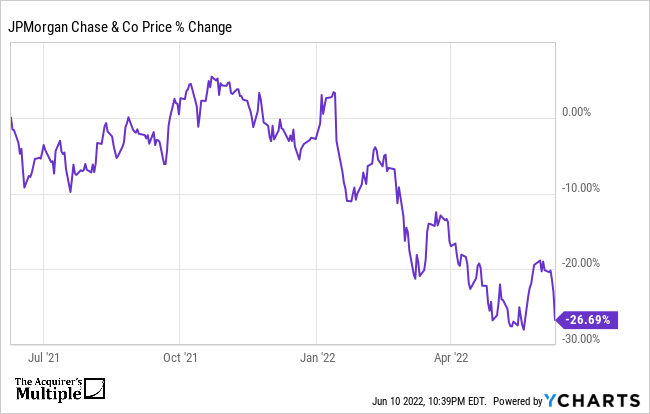
This article will focus on the basics and how to invest in forex and stocks. You will learn how to become an expert day trader, and you can start investing in the currencies you love. Learn how to use Forex to your advantage. Forex could even allow you to make a career out of it! How can you make the most out of Forex? You need to be able to identify the most successful strategies as well as those that are most risky.
Investing In Stocks
An investor will know how important diversifying portfolios are. Although forex can improve the performance of investments, it is important to understand how it works. There are many differences between foreign currency markets and stocks. The currency markets are open 24 hours per day and are more susceptible to global political issues. Investors can also access them more easily because they are easier to access.

Forex trading
When deciding whether to trade stocks or forex, you must consider the risk of poor investment advice. Forex is more volatile. Forex traders experience both large gains and small losses. Although the stock market can be lucrative, the returns are usually slower. Forex traders have to be serious about long-term strategy and ignore emotions. Listed below are some of the advantages of trading in forex. To learn more about forex, read this article.
Day trading in forex
There are many things to consider before beginning day trading in stocks and forex. First, it is important to set a goal. It is tempting to try and buy every stock available in the world, hoping for quick profits. However, this is not realistic. You may need to take time to master the trades and earn a profit. You should also decide which trading method you will use. Technical analysis and fundamental analysis are both possible.
Investing with stock market indexes
A stock market indicator is an investment that measures a group of stocks' performance. These indexes are often used by investors to analyse market trends, identify trends in the industry, and invest into index funds. These indexes don't necessarily reflect the stock market but can be used as a tool to diversify portfolios. ETFs, one type of index fund, are one example. Here are some things you need to know before investing in one. These funds offer diversification and lower fees.

Investing for stock market futures
Investing in stock market futures is a way to diversify your portfolio and take advantage of increased volatility. You can also get direct market access to secondary market products and commodity assets through futures trading. Futures trading is a great way of managing risk because futures contracts can be settled with cash settlements and physical delivery. Futures can also easily be settled in foreign currencies. This allows for bearish positions as well as reversals, without having to increase margin requirements.
FAQ
What is the difference between non-marketable and marketable securities?
The differences between non-marketable and marketable securities include lower liquidity, trading volumes, higher transaction costs, and lower trading volume. Marketable securities, on the other hand, are traded on exchanges and therefore have greater liquidity and trading volume. These securities offer better price discovery as they can be traded at all times. However, there are some exceptions to the rule. There are exceptions to this rule, such as mutual funds that are only available for institutional investors and do not trade on public exchanges.
Marketable securities are less risky than those that are not marketable. They usually have lower yields and require larger initial capital deposits. Marketable securities tend to be safer and easier than non-marketable securities.
For example, a bond issued in large numbers is more likely to be repaid than a bond issued in small quantities. The reason is that the former is likely to have a strong balance sheet while the latter may not.
Because they can make higher portfolio returns, investment companies prefer to hold marketable securities.
Is stock a security that can be traded?
Stock is an investment vehicle that allows you to buy company shares to make money. This is done by a brokerage, where you can purchase stocks or bonds.
Direct investments in stocks and mutual funds are also possible. There are more mutual fund options than you might think.
The key difference between these methods is how you make money. Direct investment earns you income from dividends that are paid by the company. Stock trading trades stocks and bonds to make a profit.
In both cases you're buying ownership of a corporation or business. If you buy a part of a business, you become a shareholder. You receive dividends depending on the company's earnings.
Stock trading offers two options: you can short-sell (borrow) shares of stock to try and get a lower price or you can stay long-term with the shares in hopes that the value will increase.
There are three types to stock trades: calls, puts, and exchange traded funds. Call and put options let you buy or sell any stock at a predetermined price and within a prescribed time. ETFs are similar to mutual funds, except that they track a group of stocks and not individual securities.
Stock trading is very popular because it allows investors to participate in the growth of a company without having to manage day-to-day operations.
Stock trading can be a difficult job that requires extensive planning and study. However, it can bring you great returns if done well. This career path requires you to understand the basics of finance, accounting and economics.
What is the difference of a broker versus a financial adviser?
Brokers are people who specialize in helping individuals and businesses buy and sell stocks and other forms of securities. They take care of all the paperwork involved in the transaction.
Financial advisors are specialists in personal finance. They are experts in helping clients plan for retirement, prepare and meet financial goals.
Financial advisors can be employed by banks, financial companies, and other institutions. You can also find them working independently as professionals who charge a fee.
Consider taking courses in marketing, accounting, or finance to begin a career as a financial advisor. You'll also need to know about the different types of investments available.
What is a bond?
A bond agreement is an agreement between two or more parties in which money is exchanged for goods and/or services. It is also known to be a contract.
A bond is usually written on a piece of paper and signed by both sides. The bond document will include details such as the date, amount due and interest rate.
The bond can be used when there are risks, such if a company fails or someone violates a promise.
Many bonds are used in conjunction with mortgages and other types of loans. This means that the borrower must pay back the loan plus any interest payments.
Bonds are used to raise capital for large-scale projects like hospitals, bridges, roads, etc.
A bond becomes due upon maturity. That means the owner of the bond gets paid back the principal sum plus any interest.
If a bond does not get paid back, then the lender loses its money.
Can bonds be traded?
The answer is yes, they are! Bonds are traded on exchanges just as shares are. They have been trading on exchanges for years.
The main difference between them is that you cannot buy a bond directly from an issuer. You will need to go through a broker to purchase them.
This makes it easier to purchase bonds as there are fewer intermediaries. This means you need to find someone willing and able to buy your bonds.
There are different types of bonds available. Different bonds pay different interest rates.
Some pay interest quarterly while others pay an annual rate. These differences make it easy to compare bonds against each other.
Bonds are very useful when investing money. If you put PS10,000 into a savings account, you'd earn 0.75% per year. You would earn 12.5% per annum if you put the same amount into a 10-year government bond.
If you put all these investments into one portfolio, then your total return over ten-years would be higher using bond investment.
What is a mutual-fund?
Mutual funds are pools or money that is invested in securities. They allow diversification to ensure that all types are represented in the pool. This reduces the risk.
Professional managers are responsible for managing mutual funds. They also make sure that the fund's investments are made correctly. Some funds offer investors the ability to manage their own portfolios.
Because they are less complicated and more risky, mutual funds are preferred to individual stocks.
Statistics
- The S&P 500 has grown about 10.5% per year since its establishment in the 1920s. (investopedia.com)
- US resident who opens a new IBKR Pro individual or joint account receives a 0.25% rate reduction on margin loans. (nerdwallet.com)
- Our focus on Main Street investors reflects the fact that American households own $38 trillion worth of equities, more than 59 percent of the U.S. equity market either directly or indirectly through mutual funds, retirement accounts, and other investments. (sec.gov)
- Even if you find talent for trading stocks, allocating more than 10% of your portfolio to an individual stock can expose your savings to too much volatility. (nerdwallet.com)
External Links
How To
How to Trade Stock Markets
Stock trading refers to the act of buying and selling stocks or bonds, commodities, currencies, derivatives, and other securities. The word "trading" comes from the French term traiteur (someone who buys and sells). Traders sell and buy securities to make profit. This is the oldest form of financial investment.
There are many options for investing in the stock market. There are three basic types of investing: passive, active, and hybrid. Passive investors are passive investors and watch their investments grow. Actively traded investor look for profitable companies and try to profit from them. Hybrids combine the best of both approaches.
Passive investing can be done by index funds that track large indices like S&P 500 and Dow Jones Industrial Average. This type of investing is very popular as it allows you the opportunity to reap the benefits and not have to worry about the risks. You can just relax and let your investments do the work.
Active investing involves picking specific companies and analyzing their performance. Active investors will analyze things like earnings growth rates, return on equity and debt ratios. They also consider cash flow, book, dividend payouts, management teams, share price history, as well as the potential for future growth. They then decide whether they will buy shares or not. If they believe that the company has a low value, they will invest in shares to increase the price. However, if they feel that the company is too valuable, they will wait for it to drop before they buy stock.
Hybrid investing blends elements of both active and passive investing. You might choose a fund that tracks multiple stocks but also wish to pick several companies. In this scenario, part of your portfolio would be put into a passively-managed fund, while the other part would go into a collection actively managed funds.